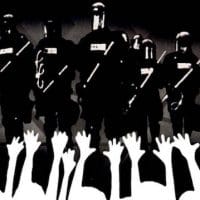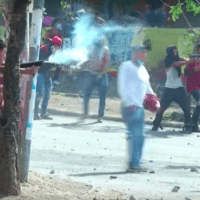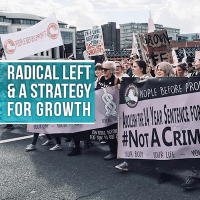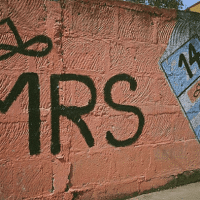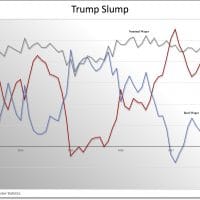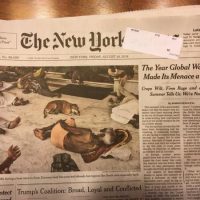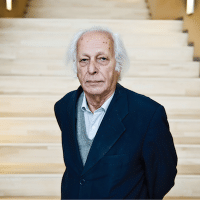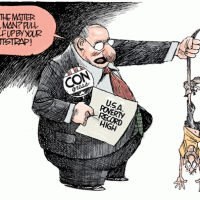-
From Boston to Ferguson to Charlottesville: the evolution of a Police State lockdown
It has become way too easy to lockdown this nation.
-
Interview with Angel Prado (Part I): “The commune holds the solution to the crisis”
A grassroots Chavista leader reflects on the future of the communal project and the contradictions in the Bolivarian Process, in this interview with VA’s Ricardo Vaz.
-
What is behind Facebook deleting teleSUR English’s page?
Suddenly without warning, between 4 and 5 pm on Monday, August 13th, the Facebook page of teleSUR English was unpublished for the second time this year.
-
Colonialism 2.0 in Latin America and the Caribbean
Once the internet became the world’s central nervous system, the U.S. borders were extended across the planet.
-
Rise in extreme weather events in India raises concerns over climate change impact
An analysis by IMD researchers has indicated increased disaster potential for instant flooding over central India, where the intensity and frequency of heavy and very heavy rainfall have been increasing.
-
What’s Left in Nicaragua after Ortega
Before the violence that started mid-April, Nicaragua had been the most peaceful, safest, and by far the most progressive country in Central America. Now that a semblance of peace has been restored in Nicaragua, the U.S. government continues its campaign for regime change joined by some who formerly supported Nicaraguan President Daniel Ortega and his Sandinista party.
-
The radical left & a strategy for growth
The present social order is showing remarkable signs of decay. Slowing economic dynamism and growing geopolitical rivalries have produced a dangerous and chaotic world.
-
Imperialism in the 21st Century
Imperialism has taken a new form in the 21st century in the shape of global value chains or global production networks. The GVCs involve the utilisation by lead firms from headquarter economies of differences in international labour costs or international labour arbitrage to earn superprofits or rents. This article deals with the economic mechanisms and processes in producing various types or forms of imperialism.
-
How Nicaragua’s ‘left-wing’ opposition MRS are NGO opportunists lobbying the West for regime change
The Sandinista Renovation Movement (Movimiento Renovador Sandinista – MRS) is the intellectual, left-sounding arm of reactionary politics in Nicaragua. Its popular base is minuscule, but it has been adept at courting Western support.
-
Capitalism vs. water
Capitalism vs. water.
-
The optimism of a victor
Finding a formula to describe Fidel is no easy task.
-
Black workers and immigrants: borrow a page from Marx
Tom Broadwater, a brother, recently wrote a commentary titled “Democrats’ Immigration Dogma is Damaging African American Communities.” It appeared in the Afro American newspaper and in Newsweek.
-
Don’t class warfare me
Marketplace’s Kai Ryssdal is no class warrior.
-
The fires this time and their implications for ecosocialists
“Deindustrialization.” That’s a word you virtually never hear in the debate around global warming. Not surprising. It’s a word that’s loaded with negative implications: economic collapse, mass layoffs, falling living standards.
-
Death of a Marxist
Amin’s thesis—in economics—was written while he was active in the French Communist Party. In the thesis, he thought hard about the problems of his native land and other countries despoiled by the colonial menace. For Amin, as with other dependency theorists, the Third World suffered from theft, plunder as well as deindustrialisation, and then unequal exchange.
-
Facebook suspends teleSUR English without explanation, again
teleSUR English’s page has been removed from Facebook for the second time this year without any specific reason being provided. This is an alarming development in light of the recent shutting down of pages that don’t fit a mainstream narrative.
-
U.S. now allowing asbestos back into manufacturing and building
The Environmental Protection Agency (EPA) is about to give the go-ahead for the use of Asbestos in manufacturing, building or other use.
-
Samir Amin stood for people
Samir Amin transcends all borders capital creates to divide peoples struggling against exploiters, against all divisive politics, against all sectarian ideologies, which serve imperialism. Samir Amin stands for a modern life for peoples while opposes all backward ideas and ideologies serving exploiters.
-
Magical bootstraps and the struggles of working Americans
A recession is coming, sooner or later. Once it hits, we can expect articles bemoaning the fact that working people didn’t build-up their savings during this record expansion to help them through the hard times. If only they had pinched pennies here and there, skipped a new TV or smart phone, they could have generated some capital that could have been invested…. Ah the missed opportunities.
-
Venezuela’s monetary revolution vis-à-vis economic sanctions
Nino Pagliccia looks at the impacts of the increasing sanctions against Caracas.

